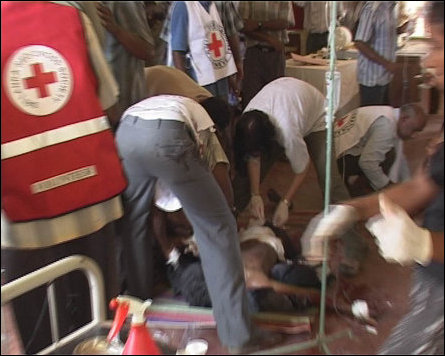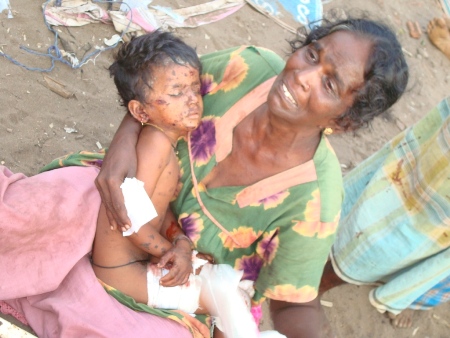 |
Bosnian Serbs denied the Red Cross access to the eastern town of Srebrenica in July 1995 to hide the ongoing massacre of some 8,000 Muslim civilians, a witness said this week.
See report on the trial of former Bosnian Serb leader Radovan Karadzic here.
In 2009, Sri Lanka also blocked the Red Cross (ICRC) from accessing the northern enclave in Tamil civilians were being massacred by shelling by its forces.
See the BBC's report (Jan 16) here, and CNN's report (Jan 27) here.
On March 1, Indian Foreign Minister Pranab Mukherjee appealed for Sri Lanka to allow the civilians to escape the killing zone. This is what he said:
“The Sri Lankan government should use the ceasefire offer by the LTTE to evacuate all civilians caught in the crisis. Seventy thousand or more more civilians are trapped there ... [Also] Colombo should allow international organisations like the ICRC to work there."
However, Sri Lanka refused both requests.
This is what Pierre Krähenbühl, ICRC director of operations said in mid-April:
"The situation is nothing short of catastrophic. I cannot remember ... as much concentrated pain and exposure to violence with very, very minimal possibilities to reach anywhere that could be called safe."
See AP's report here.
This is what Krähenbühl said on May 15, 2009:
"Our staff are witnessing an unimaginable humanitarian catastrophe [in Mullaitivu]”
See the ICRC’s statement here.
For a chronology of the bloodbath, see a selection of TamilNet reports from January - May 2009 here.
 |
